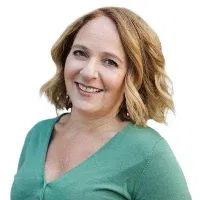Articles / Clinical Conversations: Preservation of Fertility and Fertility Options During and after Cancer Therapy | Part one


writer
Specialist, Gynaecologist and Reproductive Endocrinologist; Associate Professor of Obstetrics and Gynaecology, University of Melbourne, Royal Women’s Hospital; Clinical Director and Head of Clinical Research, Melbourne IVF
This is part one of this series. Read Part 2 >>
Practice points
• Chemotherapy causes many of the oocytes and follicles undergo atresia and so lots of eggs and follicles are lost.
• Older premenopausal women will have fewer eggs available compared to a younger woman. However, younger women’s ovarian function may come back after chemotherapy, but they will then have premature ovarian insufficiency or a very early menopause.
• “Random start” is the induction of ovulation, just like an IVF cycle, except that the stimulation is commenced at any time in the ovulation cycle to save time. The eggs develop over ten to fourteen days and are harvested and frozen. As for IVF, there is attrition of the eggs so only one or two out of ten will be potentially fertile.
• Egg freezing is not an option for prepubescent girls, for patients who don’t have time to undergo a couple of weeks of stimulation, or those with certain cancers. Instead, part of an ovary, or for patients who are high risk, the whole ovary, is removed, sliced up and frozen.
• Gonadotropin-releasing hormone (GnRH) analogue injections protect the ovary by reducing the number of eggs that are going to be exposed during chemotherapy. This is commenced a day or so prior to chemotherapy and is given once a month during the chemotherapy.
• Prepubescent boys, and some young men who are unable to produce ejaculate, may need a testicular biopsy and freezing of testicular tissue or, in post-pubertal boys, the sperm may be taken out of that tissue and frozen.

Alcohol Addiction Assessment and Advice

Premature Ovarian Insufficiency – The New Guidelines

Paediatric Allergic Rhinitis & Immunotherapy

Autism Spectrum Disorder – Managing Challenging Behaviours

writer
Specialist, Gynaecologist and Reproductive Endocrinologist; Associate Professor of Obstetrics and Gynaecology, University of Melbourne, Royal Women’s Hospital; Clinical Director and Head of Clinical Research, Melbourne IVF


Increase
No change
Decrease
Listen to expert interviews.
Click to open in a new tab
Browse the latest articles from Healthed.
Once you confirm you’ve read this article you can complete a Patient Case Review to earn 0.5 hours CPD in the Reviewing Performance (RP) category.
Select ‘Confirm & learn‘ when you have read this article in its entirety and you will be taken to begin your Patient Case Review.
